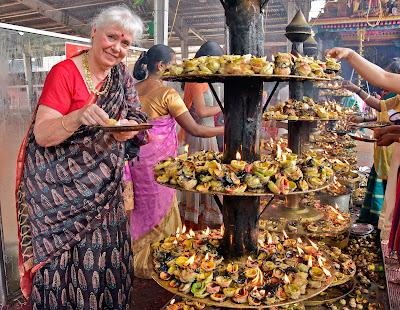A
nun in Kerala has taken upon the task of building houses for the
poor. So far, she has made 60 and more are in the pipeline
Photos: Sr. Lizzy Chakkalakal. Photo by Albin Mathew. An inside room
By
Shevlin Sebastian
Sr.
Lizzy Chakkalakal was standing at a bus stop at Chellanam,
Kochi sometime ago. The principal of the higher secondary section of
Our Lady's School at Thoppumpady, Kochi, was on her way to visit a
student's family. On the opposite side she saw a blue plastic sheet
tied to a tree. Underneath it, a family was living there. Curious,
she crossed the road and met the woman, Pushpa M.
She
had two school-going children. Her husband, an alcoholic and
part-time butcher, had committed suicide because of mounting debts.
Now Pushpa was struggling to survive. The creditors came at night
and asked Pushpa for sexual favours. “But she held on to her
integrity,” says Sr. Lizzy. “She always kept a machete under her
pillow.”
Sr.
Lizzy, who belongs to the Franciscan Missionaries of Mary, a
Catholic order, felt compelled to do something. When she heard that
Pushpa had a small piece of land, she got the idea – she would
build a house. And, through donations from retired and current
teachers, students, parents, and affluent businessmen, she built a
500 sq. ft. house.
There
is a hall, kitchen and a room which opened towards the street. “This
is a space for a shop,” says Sr. Lizzy. Soon, Pushpa began selling
tea, coffee and snacks from this room. On the first floor, there are
two bedrooms. Gradually, the children gained self-esteem when they
started staying in a proper house. “They began doing well in their
studies,” says Sr. Lizzy. “And Pushpa's life has changed.”
Sr.
Lizzy is changing the lives of many families through her ‘House
Challenge’ project. Thus far, with the help of teacher Lilly Paul,
she has built 60 houses, while a further ten are in varying stages
of construction.
But
what is most amazing is the quality of the houses. They are better
than most middle-class homes. All the floors are tiled, the walls
are painted brightly, the kitchen counter has a granite top, and
there is a washbasin in the dining hall, apart from bathrooms, with
faucets and cisterns, and wooden doors. Incidentally, each house
costs about Rs 10 lakh.
Dr.
P.J. Abraham, chairman of Divine Developers, who has built most of
the houses, says that he did not want to distinguish between poor
and middle-class houses. “We have always used high-quality
materials,” he says. “And Sr. Lizzy told us that the poor did
not have any money to spare for repairs. So the houses had to be in
tip-top condition.”
Not
surprisingly, the impact has been stunning for the recipients. New
house-owner Mini Benny says, “It sometimes feels like a dream. My
children say that they are living in a posh hotel. It is so
unbelievable at times.”
Major
financial contributor TA Joseph, Managing Director of the Confident
Group, a construction firm, says, “Sr. Lizzy is doing a remarkable
job.”
Meanwhile,
when asked about how she selects the beneficiaries, Sr. Lizzy says,
“They are mostly widows, and families who have specially challenged
children, because they are the ones who need the most protection,”
she says.
(Sunday
Magazine, The New Indian Express, South India and Delhi)




















